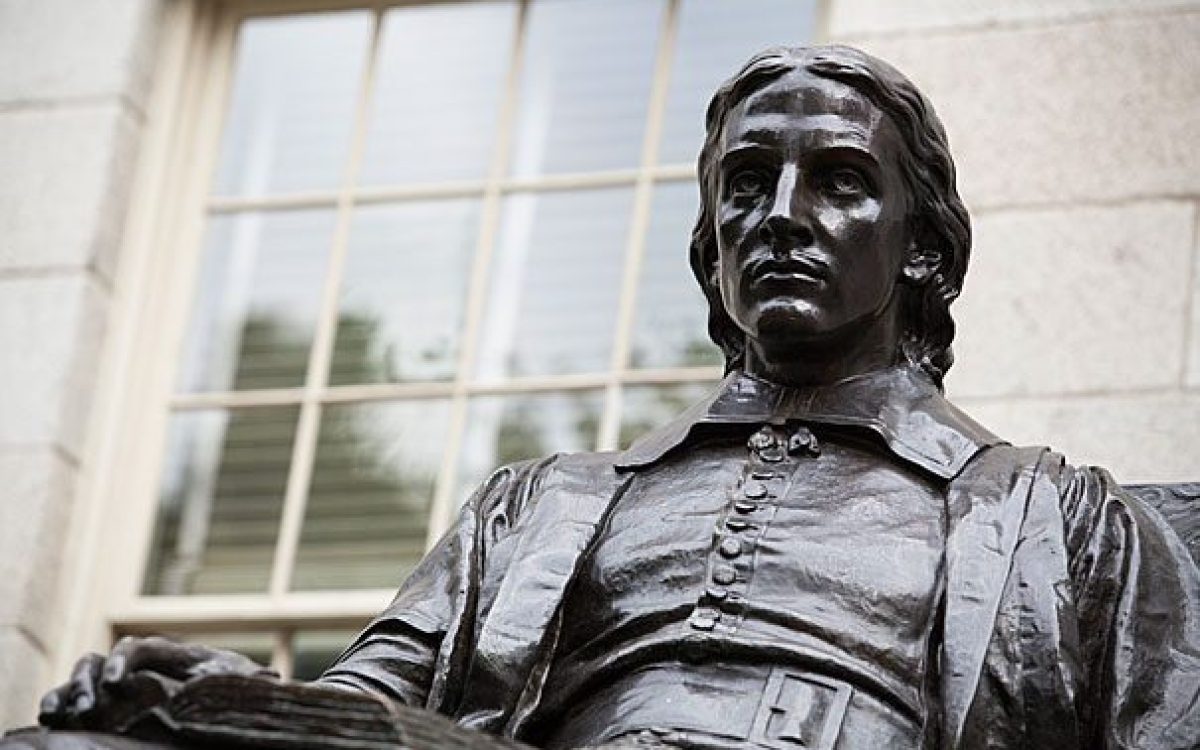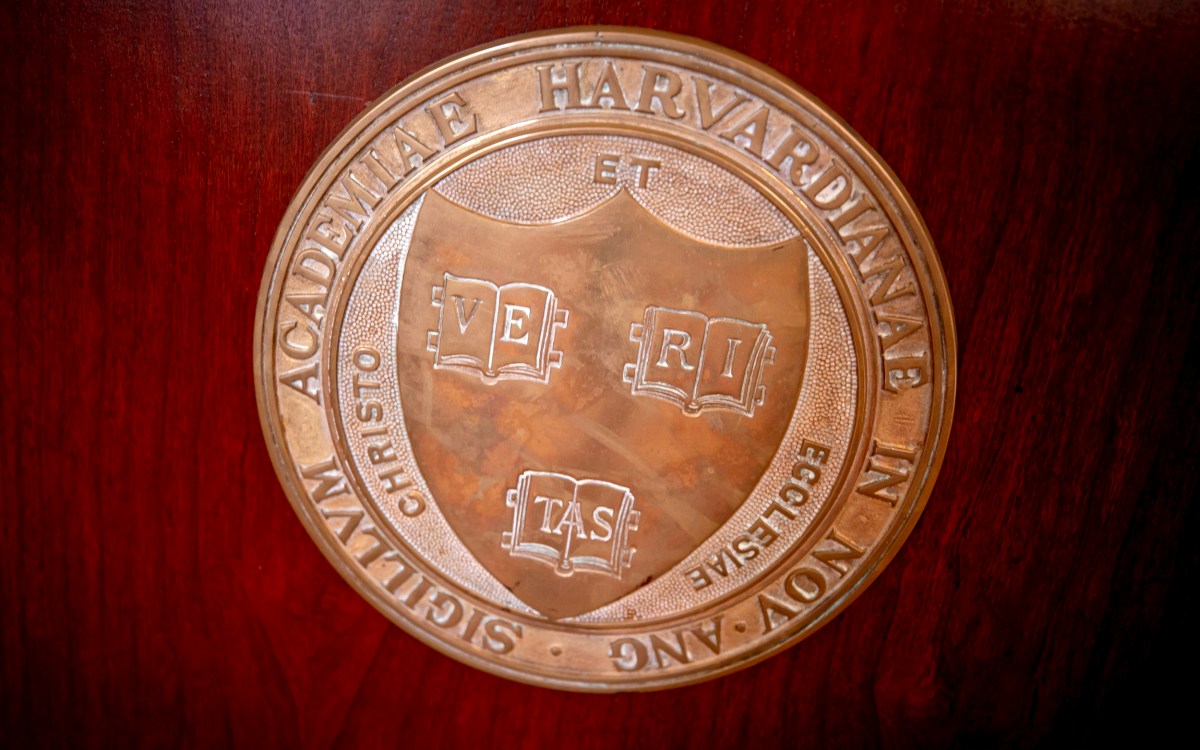
Stephanie Mitchell/Harvard file photo
5 named Harvard College Professors
FAS faculty members come from a range of disciplines but share a love of learning
Five faculty members, each of whom offers a unique area of expertise and passion for learning, have been named Harvard College Professors.
Edgerley Family Dean of the Faculty of Arts and Sciences Claudine Gay announced the honor for Paola Arlotta, Golub Family Professor of Stem Cell and Regenerative Biology; Suzannah Clark, Morton B. Knafel Professor of Music; Edward J. Hall, Norman E. Vuilleumier Professor of Philosophy; Edward W. Kohler Jr., Microsoft Professor of Computer Science; and Matthew K. Nock, Edgar Pierce Professor of Psychology.
“It’s so exciting to be able to honor these remarkable individuals,” Dean Gay said. “Each of them has demonstrated an unwavering commitment to research, to learning, and to connecting with students across a range of disciplines. I am thrilled to announce their appointments as Harvard College Professors and I look forward to learning from them in the years ahead.”
The Harvard College Professorships were launched in 1997 through a gift from John and Frances Loeb. They are five-year appointments that include extra support for research or scholarly activities, as well as a semester of paid leave or a summer salary.
Paola Arlotta
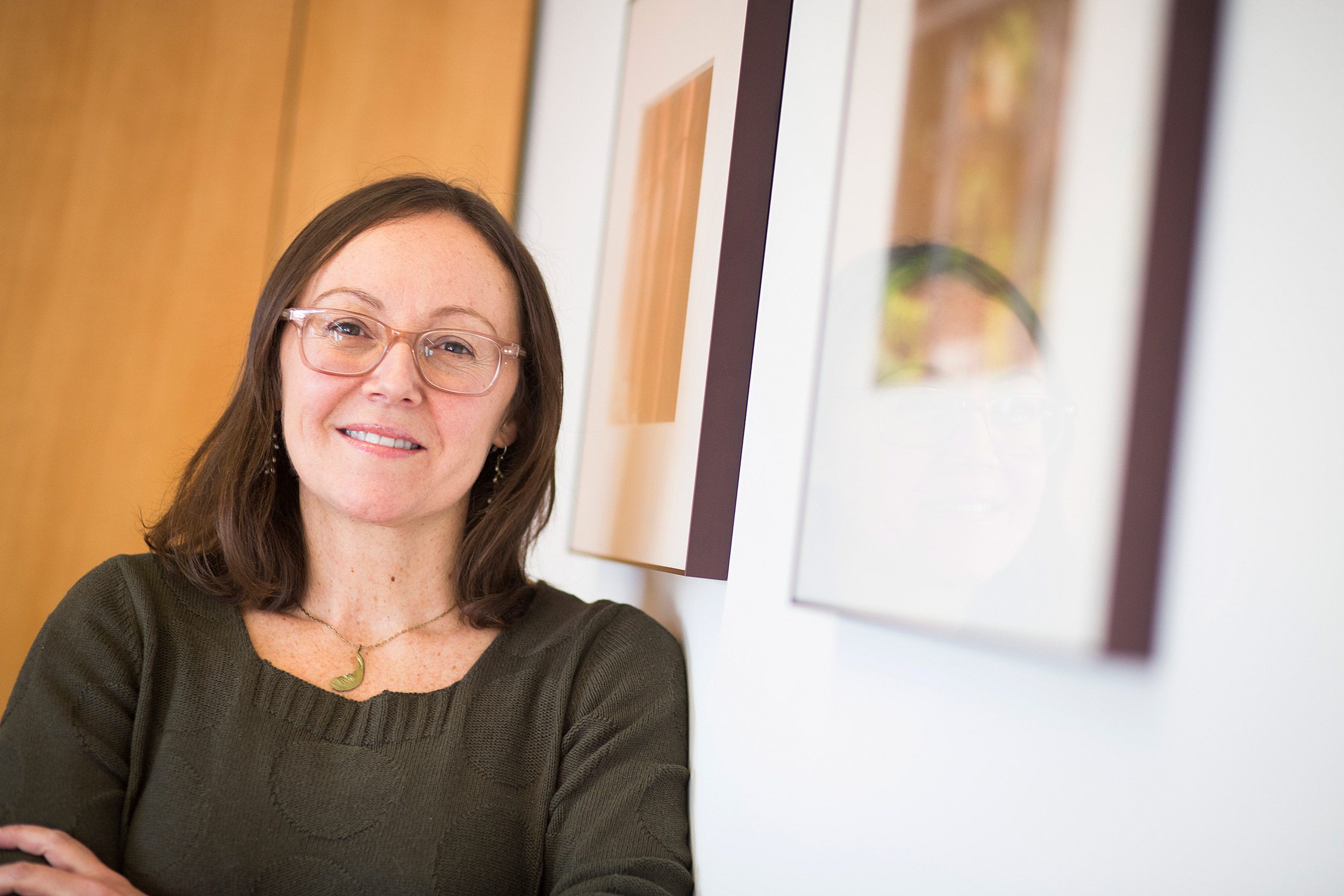
Stephanie Mitchell/Harvard file photo
“Every day we interact, speak, move, think, and wonder,” Arlotta said, “yet we rarely stop to think about the incredible organ that allows us to do all of this: the brain.”
Arlotta has spent her scientific career focusing largely on the brain, and is pursuing her passion both in the classroom and in the laboratory.
“I spent most of my career wondering about how an embryo goes about building such a beautifully complex organ. I never cease to be amazed by this extraordinary process, and that sense of wonder is what motivated me to emulate some aspects of brain development in a dish, starting from stem cells.”
Arlotta’s work contributed to a new generation of disease models: organoids. These raisin-sized collections of neurons, made from human stem cells, replicate minuscule portions of the brain, and they are changing the study of neurological disease.
“This technology is giving us the very first opportunity to explore human brain development directly, and will help us answer so many questions,” Arlotta said. “It will let us get right to the root of human brain diseases like autism and schizophrenia. We can discover their origins and unpick all of those complex mechanisms that make the human brain so amazing — and for many, so terrifying.”
For Arlotta, becoming a Harvard College professor is an opportunity to gain fresh perspectives on how stem cell science is taught.
“Today we are able to do research into human diseases that would have been impossible only a year ago,” she said. “The pace of progress in stem cell science is simply breathtaking. So how can we give students firm grounding in a field that is moving so quickly?”
The Department of Stem Cell and Regenerative Biology has a mission to push the frontiers of science, and a big part of that is education: making sure students learn the state of the art, even as it changes.
“I am energized to build a new course that allows students to experience firsthand the excitement of what we are doing with organoids,” said Arlotta. “This is a special time for our field. We have learned so much about what stem cells can do, and are poised to apply it to making new tissues and organs. When you combine all these new possibilities for understanding human diseases with the unique perspective students bring, that’s when we’ll start to see real transformation.”
Suzannah Clark
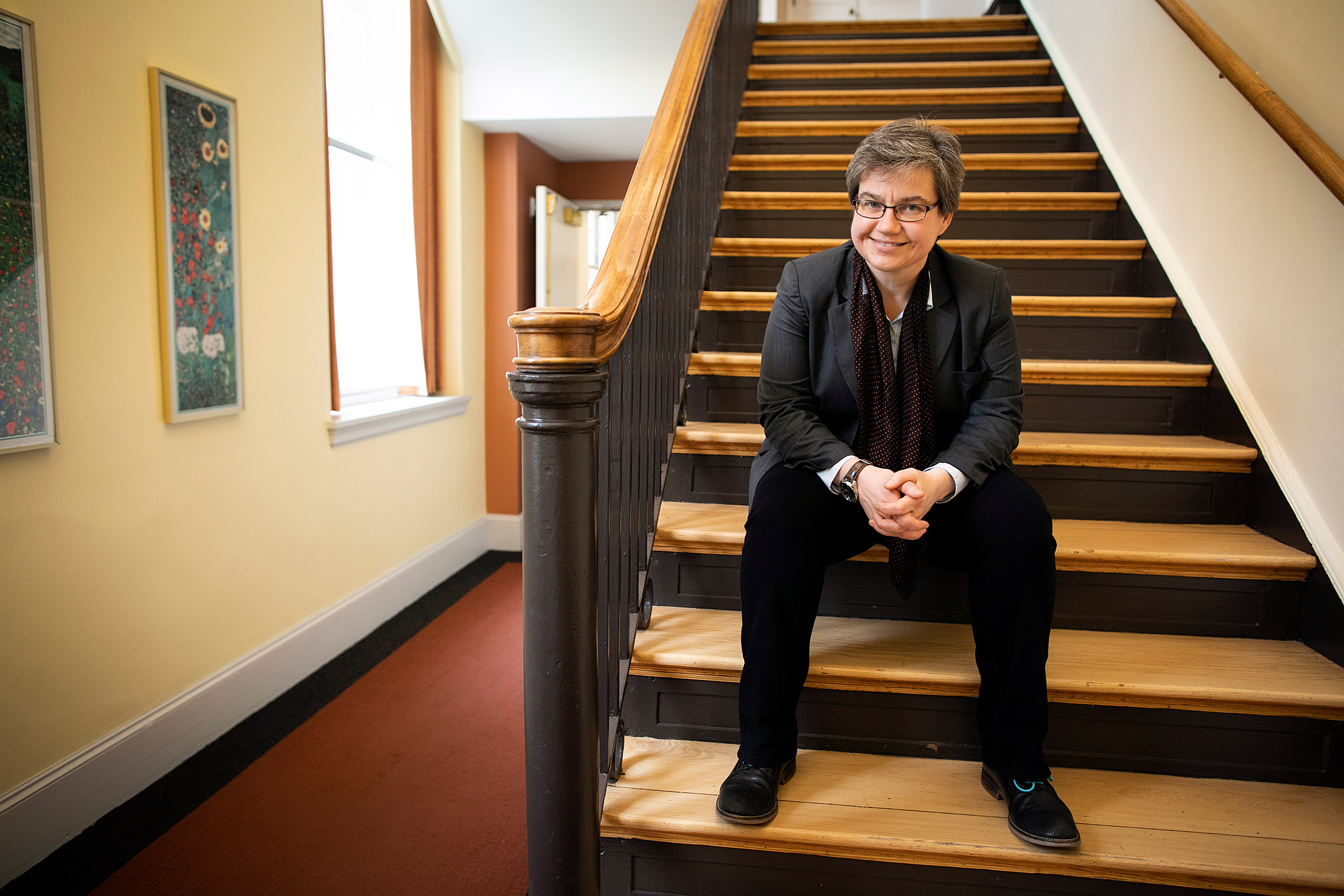
Stephanie Mitchell/Harvard Staff Photographer
For Clark, the news of her appointment could not have come at a better time.
“I found out just as I was about to draft my proposal for a new Gen Ed course, which seemed very apropos,” she said. “Being an educator is a great privilege, and I feel truly honored to be recognized in this way.”
Clark specializes in the history of music theory, with particular focus on the music of Franz Schubert and medieval vernacular music.
“My fascination with medieval motets was sparked by a class I took in my first semester as an undergraduate, and I’ve been hooked ever since,” she said. “It’s a genre that has its roots in both liturgical music and the lyric tradition of the trouvères [epic poets in Medieval France]. Its hybridity makes it ideal for studying the development of new compositional techniques, and the pieces are filled with social commentary.”
Clark is looking forward to offering a General Education course that explores the intersection of music and poetry.
“I plan for the course to explore the rich layers of meaning and interpretation available in the interplay between the music and poetry,” she said, “and most likely we’ll cover some 800 years of the art of songwriting.”
Clark also plans to use the professorship as an opportunity to write a book on 13th-century vernacular music, and its development around the Notre-Dame Cathedral during the first hundred years of the church’s construction.
“This music has a lot of humor in it,” she said. “One can really learn a lot about the ideals of chivalry and courtly, monastic, and even student life from the composers’ musical pranks. The recent devastating fire of Notre-Dame has made the prospect of working on this project all the more poignant for me.”
Edward Hall
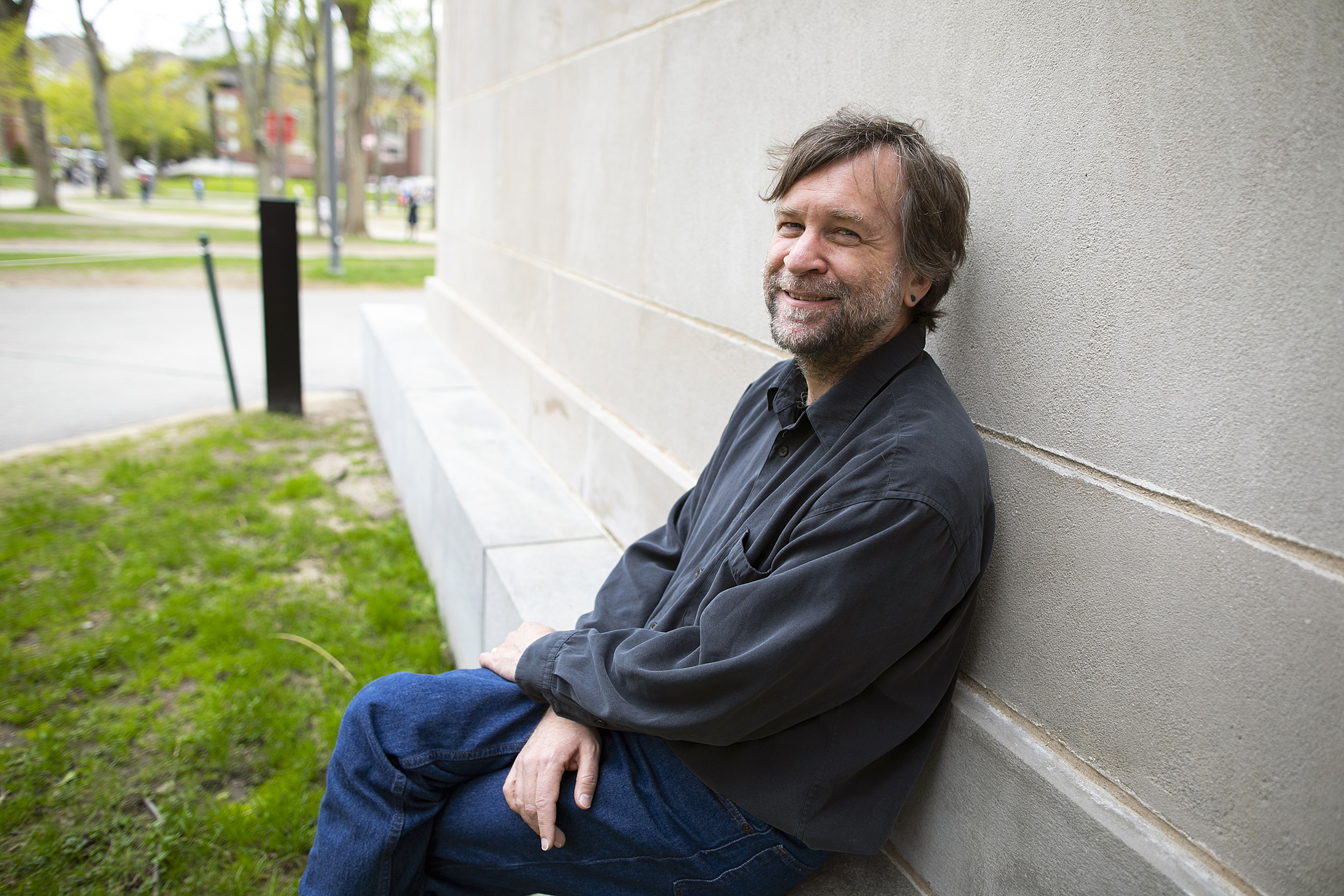
Stephanie Mitchell/Harvard Staff Photographer
A philosopher by trade, Hall is most excited about a new Gen Ed course on logic that he hopes will change the way students look at argument and disagreement and offer new avenues for respectful discourse.
“We need to think about why public disagreement so often seems to get us nowhere,” he said. “My hope is that this new logic course will offer students the training needed to deal with conflict effectively, rather than simply run away from it or take a win-by-any-means-necessary approach, which is not beneficial.”
The course will be called “Reclaiming Argument,” and it will give students a chance to use logic as a way to lay out arguments that require rational conversation rather than sound bites. He views his role as a philosopher as perfectly suited to facilitating this important discussion.
“Philosophy is well placed to offer people a way to view disagreement differently and provide the tools needed to have difficult conversations in a helpful and respectful way,” he said. “I want students to come away understanding that the point of arguing should never be to simply beat the other person into submission.”
Hall sees an opportunity to reach students across a range of concentrations.
“The idea is not to draw people into a philosophy concentration — although that does sometimes happen — but rather to create courses that have a very broad appeal,” he said.
Asked what makes Harvard such a special place, Hall cited the opportunities to connect with students. “Halfway through my first semester,” he said, “I realized I had already spent more time speaking with students outside the classroom than in 11 years total at another university I worked at previously.”
Edward Kohler
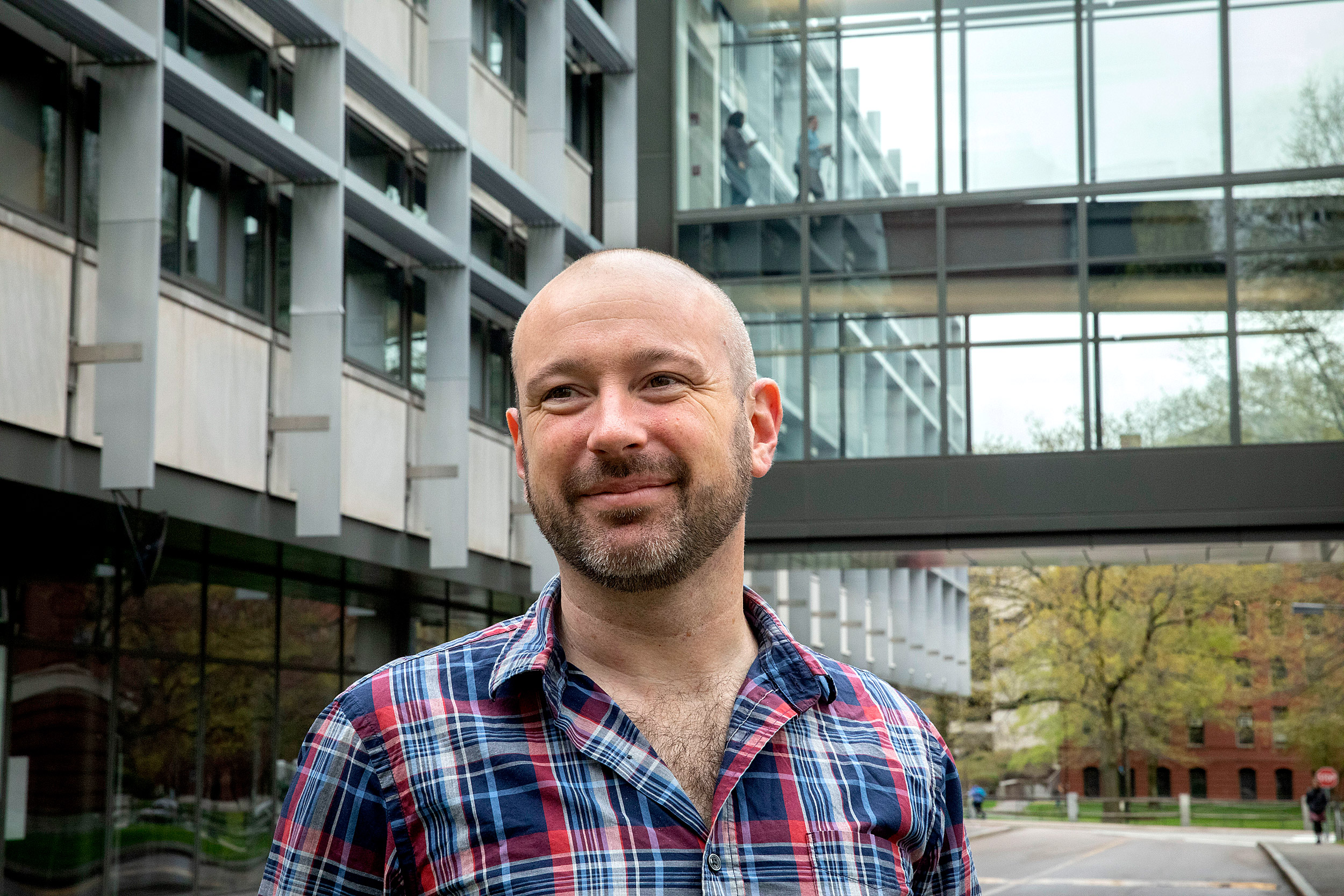
Kris Snibbe/Harvard Staff Photographer
A passion for computer science runs in the family for “Eddie” Kohler.
“I was playing with my kids when I found out about the appointment,” he said, “and I felt a wave of deep pride as my daughter made up a color-filled fake rebus equation on an iPad.”
Kohler focuses his work on computer systems, including multicore programming, web programming, and operating systems.
“I love programming and I care a lot about building useful things that are of service to people,” he said. “In the classroom I care about not hiding greasy underbellies from students and about making computer science joyful work.”
Just last year, Kohler revamped the CS 161 Operating Systems course with all new assignments, and looks forward to modifying other courses.
“I’d love to make the CS 61 intro course and CS 161 more welcoming and accessible (while keeping them hard!),” he wrote in an email, “and create more upper-division systems courses.”
Kohler is also committed to creating opportunities for broader representation in his field. “The relative underrepresentation of women in our programming classes bothers me a lot,” he said. “Computer science is great, and opening it to everyone requires continuous effort.”
Matthew Nock
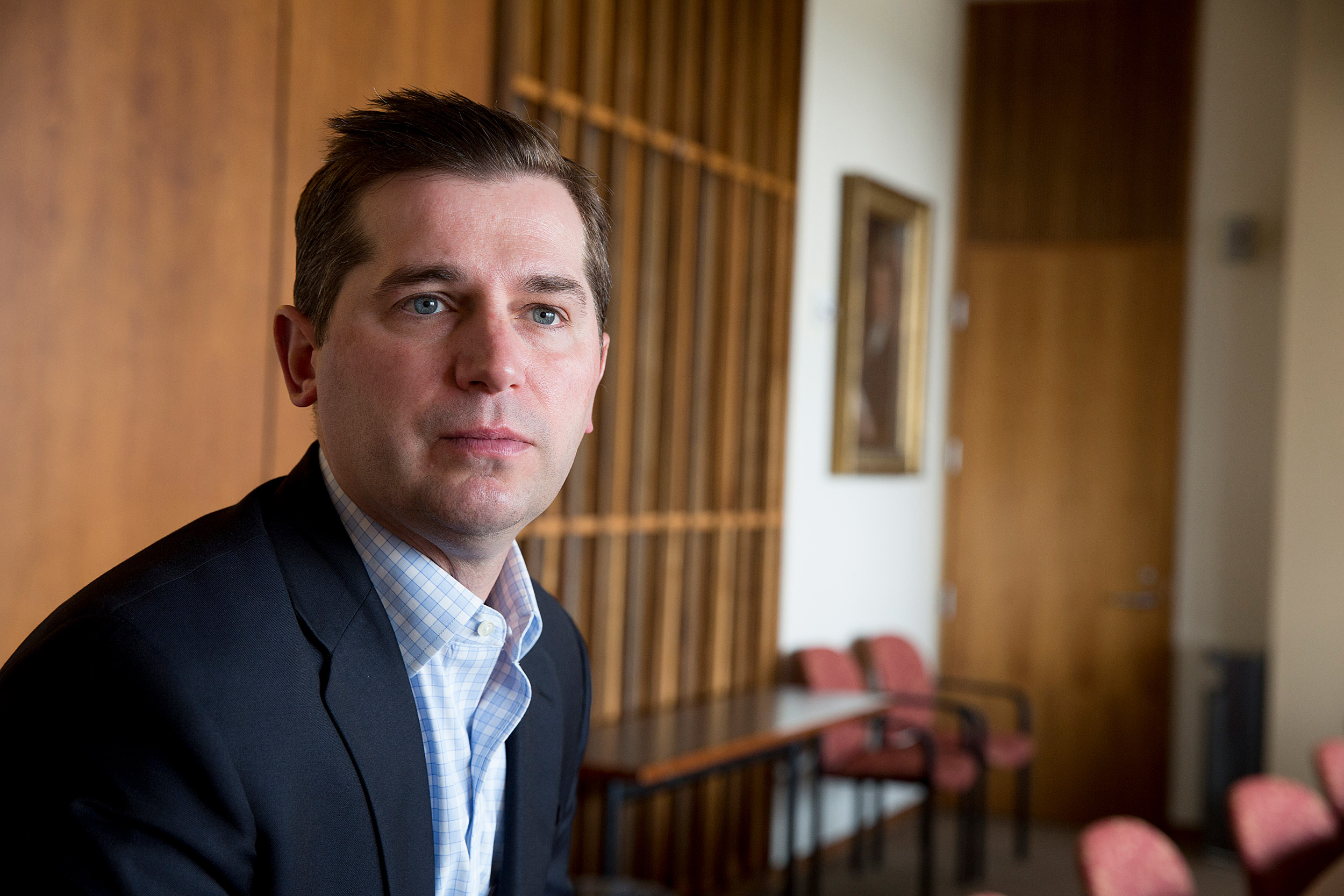
Rose Lincoln/Harvard file photo
Nock cares deeply about reaching young people who are suffering from mental health challenges and helping to understand and resolve their issues. A psychology professor, Nock is especially interested in understanding self-detrimental behavior.
“My lab’s research is focused on understanding why people behave in ways that are intentionally harmful to themselves, such as engaging in suicidal and other self-injurious behaviors,” he said. “Suicide is a leading cause of death, especially among young people, and we are passionate about advancing our understanding of it and our ability to better predict and prevent it.”
Nock is excited to be using modern technology to help him achieve results.
“Our research is using recent advances in technology to better understand the experiences of people who are having significant mental health problems,” he said. “For instance, we are using smartphones, smartwatches, social media platforms, and other technologies to better predict which people will try to hurt or kill themselves and to develop new ways of reaching and helping them where, when, and how they need it.”
Nock views students not merely as spectators or attendees in the classroom, but as collaborators.
“Our students are active and valued collaborators in this process and often bring creative new ideas and approaches to this work,” he said. “I always try to bring students into the center of the research process and to have them play key roles in planning projects, study design, data collection and analysis, and presentation of results to the scientific community.”



